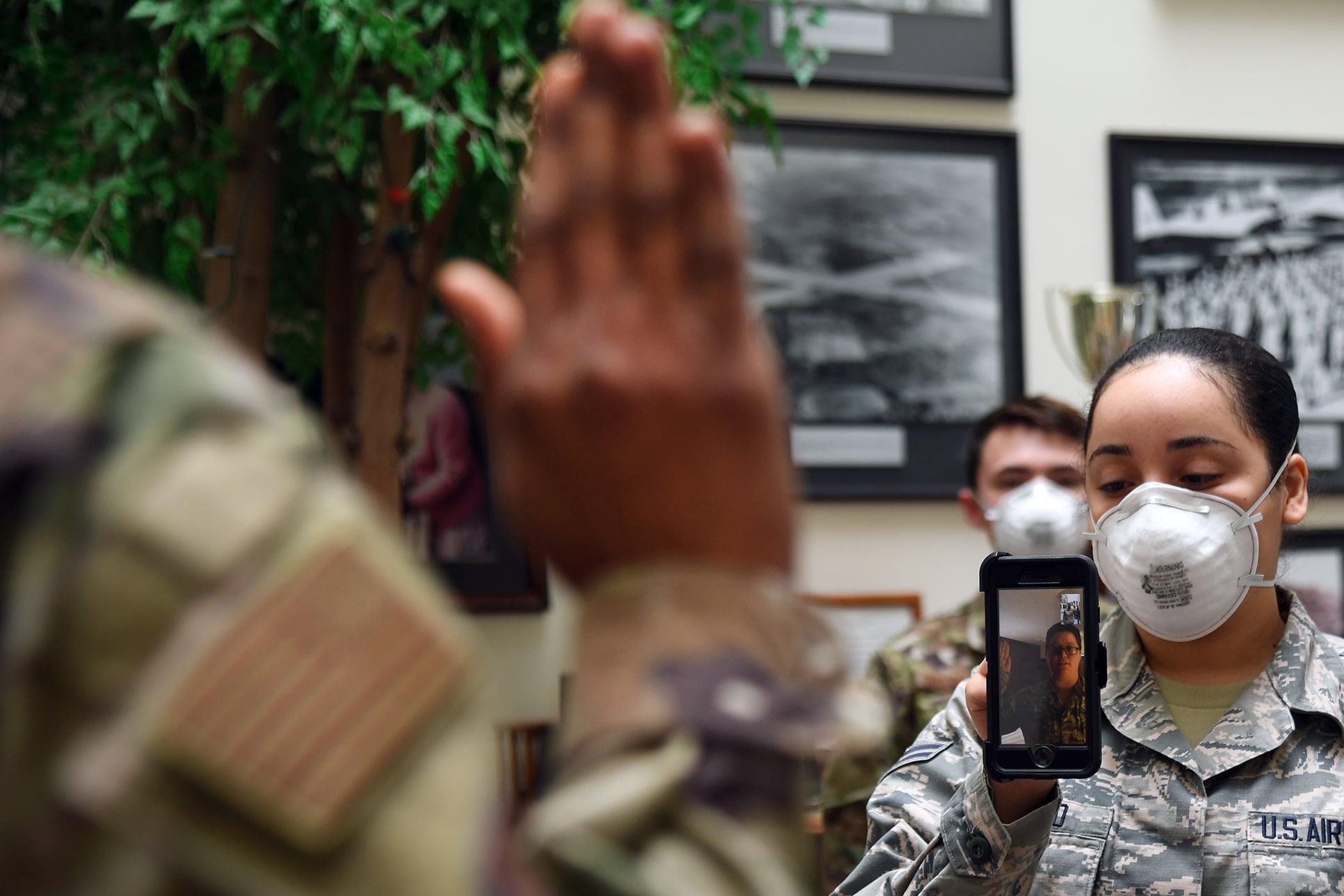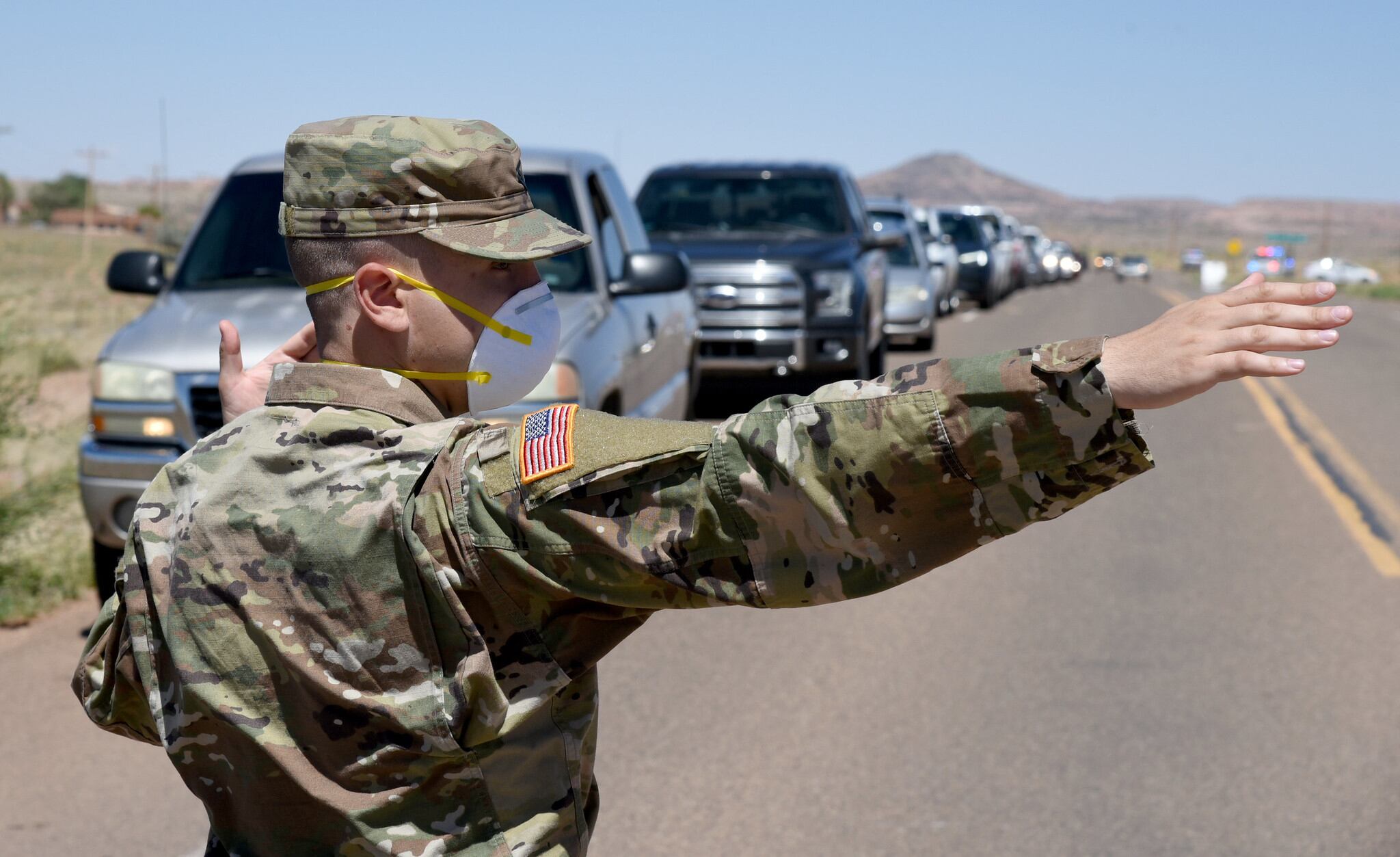There are still more than 30,000 National Guardsmen activated for coronavirus pandemic response, the head of the National Guard Bureau said Thursday, and there is no end in sight.
Since March troops have been mobilizing to work in hospitals, staff testing stations, distribute supplies and otherwise provide logistics back-up to local agencies, and that is likely to continue.
“Thankfully, civil disturbance operations seem to be receding,” Air Force Gen. Joseph Lengyel said during a Brookings Institution webinar. “But COVID-19 appears to be, maybe even on the rise, in some cases, and there’s no sign of operational tempo reduction in the near future.”
That could mean continued mobilizations over the next six months to a year, he added.
In addition to medical support, some states have tapped their Guardsmen for even more diverse tasks. In Guam, troops have disinfected government offices, while in Massachusetts and Washington, they have been called on to help process a mountain of unemployment claims.
The mission is one of several emergencies the Guard has responded to this year, as protests erupted around the country in late May and hurricane season began ramping up in June.
Additionally, thousands of Guardsmen are stationed at the U.S.-Mexico border, helping with surveillance and logistics for the national emergency President Trump declared there in early 2019.
RELATED

Troops who have been working on COVID-19 response are eligible for either the Humanitarian Service Medal or Armed Forces Service Medal, per a Tuesday memo from the Defense Department. The requirement is 30 days of activation in order to earn it, though that drops to one day if a member contracted coronavirus while serving.
The National Guard was not able to share the number of troops who have tested positive after mobilizing, a spokesman told Military Times on Thursday.
Roughly 2,000 members have contracted the virus since the pandemic began, with half of those cases still active, Master Sgt. Mike Houk said.
A vaccine is not expected until early next year.
Meghann Myers is the Pentagon bureau chief at Military Times. She covers operations, policy, personnel, leadership and other issues affecting service members.





